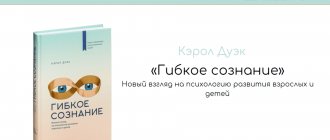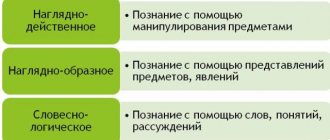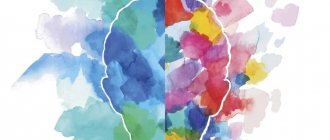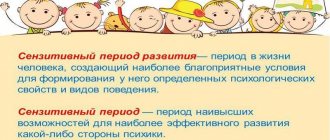Thinking, attention, memory, speech are closely related to the functioning of the brain. However, as a person ages, its cells tend to die, and neural connections are destroyed due to various factors. With age, a baggage of injuries, illnesses, and emotional turmoil accumulates - all this contributes to the deterioration of mental cognitive processes.
This would be very sad if not for one “but”. All of them are amenable to training, which slows down the aging process, strengthens neural connections, and reduces the risk of complications after all kinds of traumatic circumstances. And you can improve them at any age. The development of memory in adults is especially important, since it is she who begins to fail first. Alarm signals can make themselves felt by the age of 35, and if there have been injuries, much earlier. The main thing is to understand what needs to be done and practice regularly to achieve results.
Simple tasks
The mechanisms of memory are still being studied by neuroscientists. Experts have proven that several areas of the brain are responsible for remembering and reproducing information, which need to be regularly trained. Even ancient Greek thinkers did this. They came up with various exercises to develop memory. Many of them are used by modern people, but there are also activities that have appeared recently.
It is difficult to name the best exercises for memory development. Different types of training can influence mental processes and increase the speed and quality of memorizing the necessary information . Simple exercises are suitable for both children and adults:
- Puzzles with differences. Pictures that depict almost identical drawings, but with some differences, help develop memory and attentiveness. This game seems like a child's game, but for adults they make illustrations with many details. For children, simpler images are selected.
- Poems and songs. From childhood, children are taught to memorize rhyming lines. If you memorize rhymes or songs often, your memory will improve over time. Of course, it is easier to work with materials that you love, but students should choose information that is relevant to their lessons.
- Writing words. This method helps train linear memory. Write down 10-15 words on a sheet of paper, which are re-read to yourself or out loud several times. Then you need to turn the paper over and write everything you remember. You should also try to write them down in order. Or you can create a table of several rows and columns and then transfer it to a new sheet from memory. Over time, the list of words increases.
- "Backwards". An effective technique can improve short-term memory. A person memorizes three simple words in a row and then reads them backwards. Having mastered the task, you can move on to phrases and sentences.
- Retelling. This method helps train memory and reading. A child or teenager first needs to read short texts or paragraphs and then retell them. Then you should move on to whole pages. Retelling books helps not only to train memorization, but also provides an opportunity to learn about something new or reflect on some things.
Brain training | Memory training exercises
For adults, experts offer an interesting task. They should remember prices for the same goods in different stores, and then compare their prices.
Peculiarities
Many people believe that there is no need for an adult to develop memory, because the foundations were laid in childhood and if the child has not been worked on, nothing can be corrected. This may partially relate to speech or thinking, but not the ability to remember and reproduce information. It can and even needs to be trained throughout life.
In young age
From 20 to 30 years of age, memory deteriorates most often due to traumatic brain injuries, past infections, unhealthy lifestyle, and traumatic factors. Alcohol abuse, chronic lack of sleep, problems in relationships and at work - all this negatively affects the functioning of the brain. To correct the situation, first of all you need to put your life in order. And then select the appropriate simulators and sets of exercises. As a rule, at this age everything is still not so advanced, and you can safely practice at home for 5-10 minutes a day.
In middle age
From 30 to 40 years old, adults begin to develop memory, most often for the purpose of self-improvement, in order to remember more and better layers of information necessary for successful advancement at work. This perfectly helps to cope with all assigned responsibilities and at the same time increases IQ, since such techniques also work to improve thought processes. For this age, we can recommend modern mnemonics like “Giordano” that are quite difficult to master.
Serious problems begin between 40 and 50 years of age. Hormonal changes occur in the body, aging processes begin, metabolism slows down, which does not have the best effect on the functioning of the brain. It's time to start developing your abilities, or every year the deterioration will only progress: the failures will become deeper and more protracted. You need to devote at least 15 minutes to this every day.
In old age
If adults were engaged in memory development in a timely manner and managed to achieve certain success in this field by the age of 50, they will feel how useful it was. Firstly, much fewer problems are found than in those who have never heard of mnemonics and neurobics. Secondly, it is an excellent prevention of senile sclerosis and marasmus, Alzheimer's and Parkinson's diseases.
If you do the exercises regularly (=daily), even after 60 you can go to the store without a grocery list and calmly dial your son or daughter’s phone number from memory. The more time you devote to this in old age, the more effective the methods used will work. But it is better to consult a doctor about their choice.
Associative thinking
Improving operational and other types of memory is impossible without reference points that prevent you from getting lost in the maze of thought processes. Not only the time spent on effective techniques, but also an understanding of the laws of memorization affect brain activity. Exercises related to associations will help develop memory.
A person cannot remember incomprehensible things. Information is stored in memory if the individual is aware of it. Associative thinking serves as a memory aid. It is based on the fact that new images evoke existing ones from consciousness and are associated with them. Different concepts can be associated by contiguity (summer and heat), by contrast (warm and cold) and other criteria. However, information is better remembered if you use imagination rather than logical thinking. In this case, vivid and unusual associations created with the help of different senses remain in memory.
The method of co-sensations helps to build connections between concepts and remember them:
- It will be easier for children to remember numbers if they have associations with them. They write down numbers on paper and then figure out what they look like. For example, 0 resembles an egg, and 8 resembles a snowman. This will help you quickly remember numbers in the phone book in the future.
- It’s easier to remember months and specific dates by associating them with pleasant events that happened in a particular period of life.
- When using the co-sensation method, all 5 senses should be involved. For example, you can create several associations for the phrase “fried potatoes”. You need to remember what it looks like, smells like, tastes like and what you hear when the dish is being prepared.
If you focus better on your senses, you will be able to better perceive new information and remember it reliably. It is difficult to forget those data that caused the activity of several anatomical structures at once.
5 simple exercises for brain development
Ways and methods of memory development
To begin with, it is worth noting that we often train our memory and attention using various everyday situations in everyday life. We remember what we want to buy in a store, try to remember the birthdays of relatives, friends and acquaintances, retell the contents of a recently read book or textbook - all this and much more is good memory training. However, the use of special exercises gives us the opportunity to concentrate on the specific goal of developing a certain ability of our memory.
When talking about memory training, it is important to understand that it is almost impossible to directly train a specific ability to memorize material. Memory always develops in close connection with our attention, perception, thinking, sense organs and other phenomena of human nature. Therefore, most of the exercises below produce a complex effect on our thinking, as well as on our memory as an important component of thinking. For convenience, the exercises are divided into 2 groups: visual and auditory, and together they form an important part of our memory improvement training.
Working with Images
Exercises for visual perception help improve memory. The simplest method will require any picture. They look at the image for 3-4 minutes, then look away and mentally reproduce it before their eyes. You can describe the picture in detail out loud. After the description, you need to check the drawing in order to remember it even better. This exercise for memory development is repeated several times a day, sitting in a chair or lying on a bed.
Having taken several cards with images of different animals, you should look at them and remember them. Then the illustrations are removed and all representatives of the fauna are written down in alphabetical order on a piece of paper. The pictures are changed each time to train the memory.
Another task is based on visual associations. A person needs to remember what objects he saw on the way from home to work or any other destination. Then he writes them down in order or draws a known route with them. This method allows you to remember various things in the correct sequence.
You can take some interesting subject and study it thoroughly. Then the person closes his eyes and tries to mentally recreate this object in all details. Then he looks at the object again to find errors, memorizes again and repeats the task. This exercise is useful for self-development. It is recommended to perform it 2-3 times a week.
EXERCISES to improve MEMORY and ATTENTION.
Intensive repetition of information
How to train memory and attention in adults, what practical methods to use for this? One of the most important secrets of those people who remember data well is the frequent repetition of information after memorization. The technique is to repeat the memorized data as intensively as possible during the first four days after the initial familiarization. For example, having learned a poem, you need to intensively repeat it 3 to 4 times in one day. And so on for four days.
Auditory memory
Often people choose tasks that improve visual memory, but we also need to work with auditory memory. Reading books will help with this. Every day you need to read aloud some work (story, poem) for 10-15 minutes, and then retell the read passage with maximum accuracy. Such tasks are often given to students at school, so the training will be useful for the younger generation.
An unusual task is performed outside the home. On the way to study or work on a bus or minibus, you need to quietly listen to the conversations of the people sitting next to you and remember them. Later he repeats these passages to himself. If a person drives a personal car, then the task can be performed using a radio that broadcasts news and advertisements. Later he must pass on the new information to his colleagues or friends.
There is one more task related to the development of auditory memory. An exercise for developing mental function is reminiscent of working with words, only now an assistant says them, and the person records what he hears on paper.
We play with words. Exercise 1
- At this stage I will give you different words and try to understand them. Let's start!
Dog, table, rooster, turtle, stool, cat, chair, bed, fox, wolf.
- Please repeat!
Problem 2
- What do you think, is it possible to group these words? How could you do this? (If your child has different options, that's amazing, but try to get him to think about creating two groups of words: furniture and animals). You can simply ask: try to cross all the animals first, furniture second.
Problem 3
"Please read all these words again."
Based on your achievements, you can analyze the outcome of the game. Memorizing 6-7 words without grouping means your child has no memory. If the child quickly grouped the words and understood them, this means that indirect memory has appeared.
Other interesting tasks
Teaching children new words will be easier with visual games. Often similar methods are used to study foreign languages. Words unfamiliar to the baby are written on small pieces of paper and posted around the house on appropriate things. This way the child will remember the names of objects and learn to recognize them in the future.
There is another effective way that helps you quickly learn foreign words. They should be written down several times on a piece of paper . Every day you need to learn new words , increasing their number. This training will help students of different school grades learn a foreign language.
Development of the brain hemispheres: brain exercises
There are several more original exercises for memory development:
- Couples. Games that involve searching for identical illustrations will help increase concentration and improve the process of memorizing and retaining information. 16-20 cards are laid out on the table. They are turned over one by one and memorized in order to find identical pairs and put them aside. Such simulators can be found on the Internet online or downloaded to your computer for daily training.
- Pictograms. Such icons are found everywhere in our lives: in phones, books, brand logos. Pictograms serve as an excellent tool for memorizing information data and strengthening memory. You should choose a sentence and draw an icon for each word. For example, the verb “to see” can be depicted as an eye, and “to inhale” as a nose and a stream of steam. This game is suitable for both the development of a child and an adult.
- Mind maps. This technique is also called “mental maps” or “flash cards”. The task is reminiscent of pictograms, since they also need to be drawn. However, it is more effective and helps you memorize even entire books. A task or problem is depicted in the center of a sheet of paper. The main sections with numbering are set aside in the form of thick branches. Reveal details of tasks on thin branches using icons, keywords and color marks.
Such tasks are excellent for developing memory. In addition, they improve other brain functions by expanding neural networks. Such training is necessary for adults whose work involves mental processes and a large amount of information.
Online Games
As discussed in the Memory and Attention lesson, games, competition, and excitement are useful aids in focusing attention. In addition, gaming techniques can be useful for memory training. Below is a free online game with which you can easily train your visual memory in your free time. The rules of the game are simple: you need to open 2 table cells in a row, trying to find the same pictures. And as soon as you open all the pictures, the game will be over. This game is a kind of test of your memory: the program records the time you complete the game.
By performing these exercises and following the recommendations from previous lessons, you will soon be able to boast of excellent memory, as well as amaze your friends and acquaintances with your ability to easily remember information.
← 5
Mnemonics Theory Exam →
Treatment of patients after stroke
After a stroke, people have impaired blood circulation in one of the lobes and hemispheres of the brain. Neurons begin to die, which leads to a deterioration in the functioning of this organ. It is impossible to restore the ability to store and reproduce information 100%, but you can achieve some improvements with the help of exercises:
- Memory improvement often starts with the simplest tasks. The patient is told one or two letters, and then given a sheet of paper with text, in which he must find the necessary symbols and cross them out with a pencil.
- 3-4 simple objects are placed in front of the patient. He should take a good look at the objects within a few minutes. Then the objects are removed, and the person must name each of them and describe all the features. The task is gradually made more difficult by adding new things.
- 3-4 cards with children and signed names are laid out on the table. Each child should have some element of clothing stand out in color, for example, Lena has a red bow on her head, and Fedya has green pants. The images are then turned over and the patient is asked what each child was wearing.
- If the patient's long-term memory has not been impaired, you can play cities with him. The patient will remember all the letters of the alphabet and activate thought processes.
Restoring memory in a person who has suffered a stroke is a complex process. Of course, you cannot do without proper drug treatment, however, such exercises will have a beneficial effect on the body and improve health. The tasks will also be useful for dementia. On the website memini.ru you can find many exercises aimed at restoring memory.
Causes
A huge number of reasons in the modern world can impair memory
The following factors lead to memory impairment:
- psychological stress;
- depression;
- lack of sleep;
- infectious diseases;
- vitamin deficiency;
- alcohol consumption;
- smoking;
- brain injury;
- use of medications (antidepressants, sleeping pills);
- diseases: sclerosis, thyroid dysfunction,
- diabetes;
- aging.
Improved brain function
Memory training through exercise significantly improves quality of life. Concentration, relaxation, and meditation help improve brain function. Even subjects such as mathematics stimulate the functioning of the organ and increase the level of attention. Finger exercises and physical exercises also improve cerebral circulation and make it possible to achieve better results in memorizing information.
If it’s difficult for a person to force himself to do something useful, then he can start with trainings that will not only speed up the process of perceiving information, but also meet new people.
Adults and older people should remember that memory requires regular stress. Constant training and personal effort will help you avoid problems with the cognitive abilities of the brain in the future.
9 Exercises to Develop Your Brain
Lesson 6. Memory training
In previous lessons in this course on memory development, you received a basic understanding of the principles of high-quality memorization of any material.
Despite the fact that understanding the laws of human memory can improve the memorization of necessary information, without special exercises it is difficult to achieve high results. As in sports, music, speed reading, public speaking and acting, proper training is needed to develop memory. This lesson will tell you how to effectively train our ability to voluntarily memorize, and will also provide exercises, techniques, programs, free online games, methods and techniques for developing visual and auditory memory. Table of contents:











